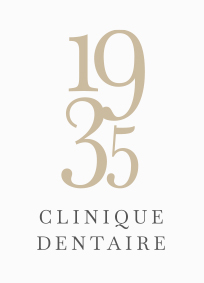Oral health is like a mirror that reflects your general state of health, but it is often neglected until serious problems develop. Oral cancer, or cancer of the oral cavity, is a serious disease that can be successfully treated when detected at an early stage.
In this article, the health professionals at our Montreal dental clinic explain the warning signs and symptoms of oral cancer, the different types of oral cancer and the vital importance of early diagnosis.
Types of oral cancer
Oral cancer, also known as cancer of the oral cavity, is a serious disease characterized by the development of cancerous cells in the tissues of the mouth. Primarily affecting the lips, tongue, floor of the mouth, cheeks, palate or gums, it represents one of the most common types of cancer of the head and neck.
Over 90% of oral cancers are squamous cell carcinomas, which begin in the squamous cells lining the mouth and throat. Other less common types include verrucous carcinoma, salivary gland cancers, lymphomas and melanomas. Each type has its own characteristics, which will influence the choice of treatment.
The prevalence of this disease varies worldwide, and is higher in some countries due to specific risk factors.
Is there a cure for oral cancer?
Yes, oral cancer is treatable, especially if diagnosed early. Treatment options include surgery, radiotherapy, chemotherapy, or a combination of these methods. The key to success lies in early detection, which requires less invasive interventions and offers a better chance of cure.
Early signs of oral cancer
Oral cancer may present no symptoms in its early stages, making regular dental check-ups particularly important. However, the presence of one or more of the following signs requires an urgent consultation with your dentist:
- Unexplained bleeding in the mouth: Any bleeding that is not the result of a known injury or other obvious cause should be taken seriously.
- Changes in taste or sensation: Altered taste or sensation in the tongue, such as tingling or burning, may be a warning sign.
- Nodules on the lips, tongue or neck: Nodules or masses, particularly if they are painless, require medical evaluation.
- Persistent ulcers or sores: Sores in the mouth that do not heal within two weeks are cause for concern.
- Alteration in the texture or color of oral tissues: Any change in the appearance of the mucous membrane of the mouth, including nodules, or dark red or white areas, should be investigated.
- Persistent sore throat and/or difficulty swallowing: These symptoms could indicate a deeper problem, especially if they are not associated with a known condition such as a cold or flu.
For more information on the symptoms of oral cancer visit the Canadian Cancer Society website.
Risk factors for oral cancer
Oral cancer is linked with a number of risk factors. Understanding these can help you take preventive action. Here are the main factors to consider:
- Age: The risk increases with age, particularly in people over 45, with the highest incidence observed in those over 60.
- Smoking: The use of tobacco products is a major risk factor.
- Alcohol consumption: Excessive and prolonged alcohol consumption is linked with an increased risk of developing oral cancer.
- Human papillomavirus (HPV): Infection with certain strains of human papillomavirus (HPV), particularly HPV-16, is associated with an increased risk of developing oral and throat cancer.
- Gender: Historically, men have been more likely to develop oral cancer than women, although the gap is narrowing.
- Diet: A diet low in fruits and vegetables can increase the risk of developing oral cancer.
- Oral hygiene: Poor oral health has been linked to an increased risk of developing oral cancer.
- Sun exposure: An increased risk of lip cancer is linked to excessive, unprotected exposure to the sun’s UV rays.
Common misconceptions about oral cancer
There are several myths surrounding oral cancer that can hinder its prevention and early diagnosis. Here are some important clarifications:
- Risk beyond tobacco and alcohol: Almost a quarter of oral cancer cases occur in individuals who do not smoke or consume alcohol, indicating that other factors such as HPV and UV exposure also play a role.
- Screening for all ages: Although the risk increases with age, oral cancer can affect anyone, underlining the importance of regular screening.
- Underestimated prevalence: Oral cancer is more common than we think, surpassing cervical or liver cancers, highlighting the need for increased vigilance.
The importance of early detection and regular dental check-ups with Clinique dentaire 1935!
Regular dental check-ups are the key to detecting oral cancer early on. Visits to the dentist are important for good oral health in general, and also make it possible to quickly identify potential symptoms of this disease.
At Clinique Dentaire 1935, our mission is to provide you with a first-class dental experience. We use advanced technologies and proven methods to perform detailed examinations of your mouth, detect any dental or oral abnormalities, and develop a customized care plan.
Remember, prevention and early detection are the keys to effectively fighting oral cancer! Contact Clinique Dentaire 1935 today to schedule a consultation and benefit from an oral health diagnosis!
